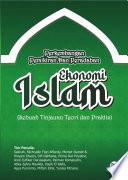
An Introduction to the Modern Middle East
History, Religion, Political Economy, Politics
Combining elements of comparative politics with a country-by-country analysis, author David S. Sorenson provides a complete and accessible introduction to the modern Middle East. With an emphasis on the politics of the region, the text also dedicates chapters specifically to the history, religions, and economies of countries in the Persian (Arabian) Gulf, the Eastern Mediterranean, and North Africa. In each country chapter, a brief political history is followed by discussions of democratization, religious politics, women's issues, civil society, economic development, privatization, and foreign relations. In this updated and revised second edition, An Introduction to the Modern Middle East includes new material on the Arab Spring, the changes in Turkish politics, the Iranian nuclear issues, and the latest efforts to resolve the Israeli-Palestinian dilemma. Introductory chapters provide an important thematic overview for each of the book's individual country chapters and short vignettes throughout the book offer readers a chance for personal reflection.
- ISBN 13 : 042997504X
- ISBN 10 : 9780429975042
- Judul : An Introduction to the Modern Middle East
- Sub Judul : History, Religion, Political Economy, Politics
- Pengarang : David S. Sorenson,
- Kategori : Political Science
- Penerbit : Routledge
- Bahasa : en
- Tahun : 2018
- Halaman : 560
- Google Book : https://play.google.com/store/books/details?id=AUhaDwAAQBAJ&source=gbs_api
-
Ketersediaan :
Introductory chapters provide an important thematic overview for each of the book's individual country chapters and short vignettes throughout the book offer readers a chance for personal reflection.









